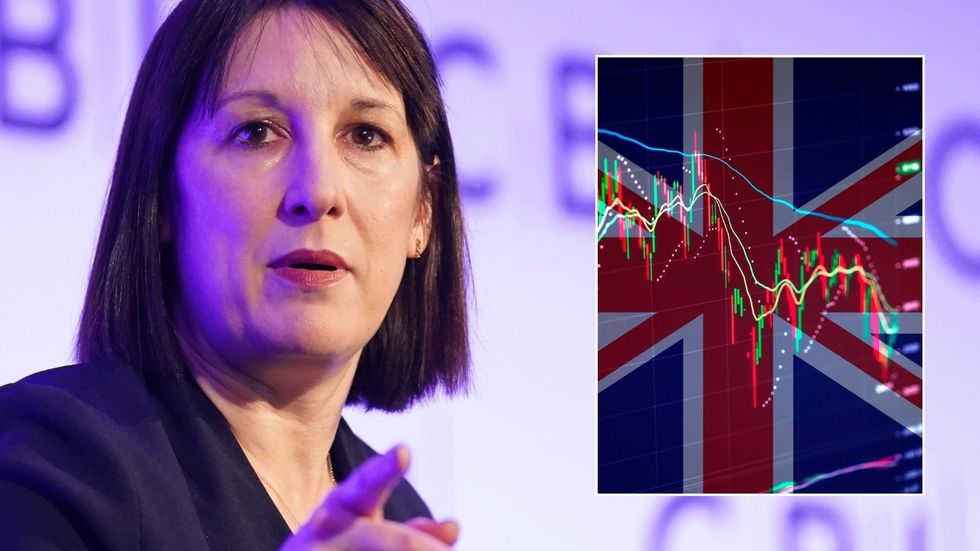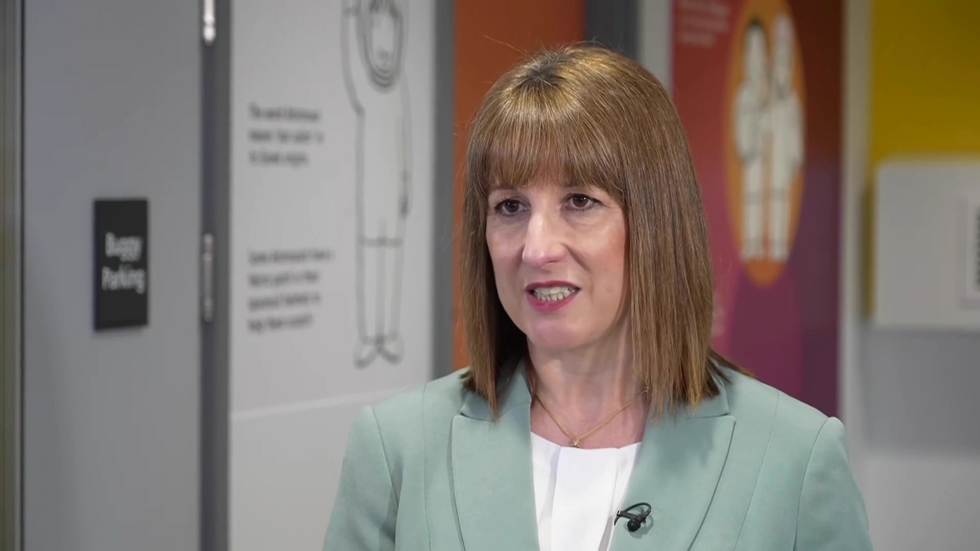Rachel Reeves under pressure as UK borrowing hits £17.7bn despite National Insurance hike - second highest May on record

Labour's history of economic woes and recessions |
GB News

Public spending rose, fuelled by rising service costs and inflation-linked benefit uprating
Don't Miss
Most Read
UK public borrowing surged to £17.7bn in May, despite increased tax receipts from Chancellor Rachel Reeves' national insurance hike implemented in April.
The May borrowing figure exceeded last year's £17bn and surpassed economists' expectations, with only May 2020 during the Covid pandemic recording higher borrowing since monthly records began.
The Office for National Statistics revealed that compulsory social contributions, largely comprising national insurance contributions, jumped by £3.9bn or 14.7 per cent to a record £30.2bn in April and May combined.
Rob Doody, deputy director for public sector finances, said: "While receipts were up, thanks partly to higher income tax revenue and national insurance contributions, spending was up more, affected by increased running costs and inflation-linked uplifts to many benefits."
Borrowing for the first two months of the financial year totalled £37.7bn, £1.6bn more than the same period in 2024.
The Chancellor faces mounting pressure as Capital Economics warned she could need to raise between £13billion and £23billion in her Autumn Budget just to maintain her £9.9billion buffer in the public finances.

Rachel Reeves under pressure as borrowing surges
| GETTY / PAAlex Kerr, UK economist said: "We doubt it will get much better for the Chancellor anytime soon, as her £9.9bn buffer against her fiscal mandate may be wiped out at the Autumn Budget."
He added: "The U-turns on benefit and welfare spending, downward revisions to the OBR's productivity forecasts and higher borrowing costs may mean to maintain her current £9.9bn buffer, Reeves has to raise £13-23bn later this year."
The warning comes as major economic forecasters, including the International Monetary Fund and the Bank of England, have downgraded the UK's growth prospects this year.
This has potentially reduced tax receipts over the longer term, forcing the chancellor to make further spending cuts or raise taxes to bridge the gap.
Economic experts have highlighted the challenging fiscal environment facing the Government, with weak economic growth and high debt servicing costs squeezing fiscal space.
Professor Joe Nellis, economic adviser at MHA, warned: "If current trends persist, total borrowing for the 2025-26 fiscal year could approach or exceed £150 billion well above the Office for Budget Responsibility's Spring forecast of £137 billion."
He noted that whilst bond yields have declined in June to one of their lowest levels this year, they remain at historically high levels, creating concern for the Treasury over interest payments on UK debt.
Kerr cautioned: "And with the gilt market sensitive to significant increases in borrowing, all this means tax rises are looking increasingly likely."

Government borrowing jumps despite boost from national insurance hike
| GETTYProfessor Nellis concluded: "With limited scope for major tax rises or deep spending cuts in the short term, the Chancellor's options to meet her fiscal rules are narrowing."
Despite the May borrowing figures, Treasury data showed that public sector borrowing for April and May combined reached £37.7billion, which was £2.9billion less than the £40.7billion forecast by the Office for Budget Responsibility.
The current budget deficit, which measures the shortfall in day-to-day spending, remained below OBR predictions for the second consecutive month, coming in at £12.8billion against a forecast of £13billion.

Economists warn with limited scope for major tax rises or deep spending cuts in the short term, the Chancellor's options to meet her fiscal rules are narrowing
| GB NEWSChief Secretary to the Treasury Darren Jones defended the government's economic approach, stating: "Since taking office, we have taken the right decisions to protect working people, begin repairing the NHS, and fix the foundations to rebuild Britain."
He added: "Last week's Spending Review showed how we are investing in the UK's security, health, and the economy through our Plan for Change, so that people are better off."
The Government faces potential rebellion from backbench Labour MPs against cuts to benefits worth more than £5bn in the welfare bill introduced to parliament on Wednesday.
More From GB News










